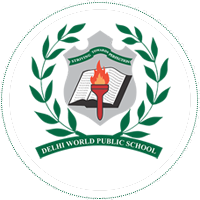Introduction:
Innovation in education is essential to engage students, foster critical thinking, and prepare them for the challenges of the 21st century. Delhi World Public School, recognized as one of the best CBSE school in Greater Noida, has been at the forefront of implementing innovative teaching methods to enhance learning outcomes. This article delves into the creative pedagogical approaches, showcasing how they inspire and empower students to reach their full potential.
-
Project-Based Learning:
Project-based learning (PBL) is a cornerstone of the curriculum. Instead of traditional lectures and rote memorization, students engage in hands-on projects that require critical thinking, problem-solving, and collaboration. Whether it’s designing a sustainable city model, conducting scientific experiments, or producing a documentary film, students are actively involved in every stage of the learning process.
PBL not only makes learning more meaningful and relevant but also allows students to apply theoretical knowledge to real-world situations. By working on projects, students develop essential skills such as research, communication, and teamwork, preparing them for success in their academic and professional lives.
-
Flipped Classroom:
Another innovative teaching method employed by the school is the flipped classroom model. In a flipped classroom, traditional teaching methods are inverted. Students are introduced to new concepts through online lectures, videos, and readings outside of class, while class time is dedicated to discussions, problem-solving activities, and hands-on exercises.
This approach allows students to learn at their own pace and engage in deeper exploration of topics during class. It fosters active learning and encourages students to take ownership of their education. Moreover, the flipped classroom model promotes collaboration and peer-to-peer learning, as students work together to solve problems and share their understanding of the material.
-
Inquiry-Based Learning:
Inquiry-based learning (IBL) is another pedagogical approach embraced by the School. In IBL, students are encouraged to ask questions, explore topics of interest, and conduct their own investigations to find answers. Teachers serve as facilitators, guiding students through the inquiry process and providing support and resources as needed.
IBL promotes curiosity, critical thinking, and problem-solving skills. It allows students to develop a deeper understanding of concepts and encourages them to take ownership of their learning. By encouraging inquiry, School instills a lifelong love of learning in its students and prepares them to be independent thinkers and learners.
-
Technology Integration:
The school recognizes the transformative potential of technology in education and integrates it seamlessly into the teaching and learning process. From interactive whiteboards and educational apps to online collaboration tools and virtual reality simulations, technology is used to enhance instruction and engage students in meaningful ways.
By leveraging technology, teachers in school’s create dynamic and interactive learning experiences that cater to diverse learning styles and preferences. Technology allows for personalized instruction, adaptive learning, and immediate feedback, ensuring that every student receives the support they need to succeed.
-
Collaborative Learning:
Collaborative learning is another innovative teaching method emphasized at Delhi World Public School. Recognizing the importance of teamwork and communication skills in today’s interconnected world, the school encourages collaborative learning activities where students work together to solve problems, complete projects, and share ideas.
Through group discussions, peer teaching, and cooperative projects, students learn from one another and develop essential social and emotional skills. Collaborative learning not only enhances academic achievement but also fosters empathy, leadership, and teamwork, preparing students to thrive in diverse and multicultural environments.
-
Multisensory Approaches:
The school employs multisensory teaching techniques to cater to diverse learning styles and preferences. Instead of relying solely on auditory or visual instruction, teachers incorporate a variety of sensory experiences into their lessons, including hands-on activities, manipulatives, and multimedia resources.
By engaging multiple senses, multisensory approaches enhance comprehension, retention, and overall learning outcomes. They accommodate different learning modalities and allow students to connect with the material in meaningful ways. Whether it’s using tactile objects to explore mathematical concepts or incorporating music and movement into language lessons, multisensory teaching engages students’ minds and bodies, making learning more enjoyable and effective.
-
Differentiated Instruction:
Recognizing that every student is unique and learns at their own pace, the school embraces differentiated instruction to meet individual needs and abilities. Teachers employ a variety of instructional strategies, materials, and assessments to accommodate diverse learning styles, interests, and readiness levels.
Through flexible grouping, tiered assignments, and personalized learning plans, teachers tailor instruction to address students’ strengths and challenges. This personalized approach ensures that every student receives the support they need to succeed and allows for greater inclusivity and equity in the classroom.
Conclusion:
Innovative teaching methods are essential to meet the evolving needs of students in the 21st century. international school in greater noida stands as a shining example of how creative pedagogical approaches can transform education and empower students to reach their full potential.
Through project-based learning, flipped classrooms, inquiry-based learning, and technology integration, school’s provide students with a dynamic and engaging learning experience that prepares them for success in an ever-changing world. As we look to the future of education, serve as beacons of innovation and excellence, inspiring others to rethink traditional teaching methods and embrace new approaches that prioritize student engagement, creativity, and critical thinking.

